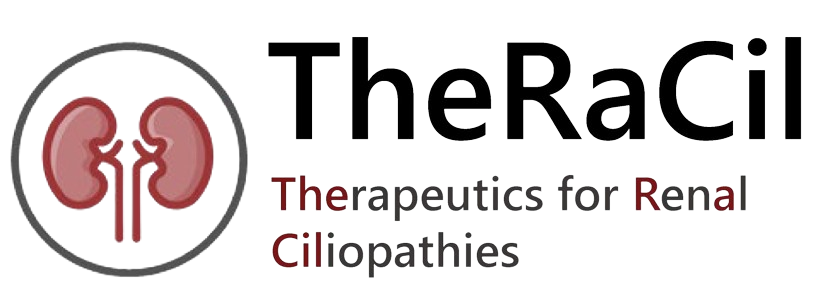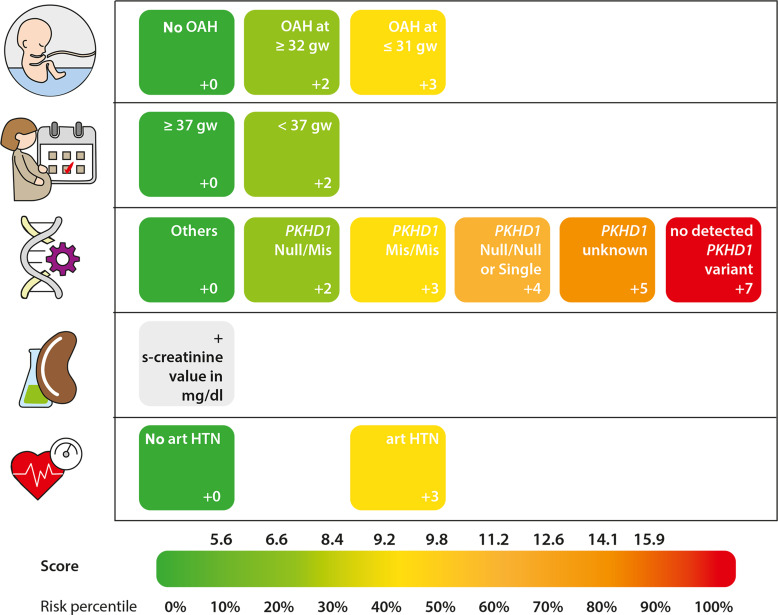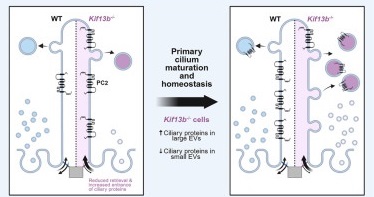News and Publications
A risk score to predict kidney survival in patients with autosomal recessive polycystic kidney disease at the age of two months
Burgmaier et al, Kidney International, Volume 107, Issue 5, p903-915, May 2025. https://doi.org/10.1016/j.kint.2025.01.023
Introduction
Autosomal recessive polycystic kidney disease (ARPKD) is a rare and serious inherited condition that affects both the kidneys and the liver. Because it is so uncommon and can vary widely from person to person, it has been difficult to run clinical trials to test new treatments. Understanding how the disease typically progresses is an important first step toward finding better therapies.
Methods
In this study, researchers followed a large group of up to 658 patients with ARPKD. They carefully tracked how their kidney function changed over time and looked for signs that could predict which children were more likely to experience faster kidney damage. They used this information to develop tools that could help doctors estimate each child’s risk of kidney failure
Results
The researchers found that about half of all patients with ARPKD reach kidney failure by the age of 20. On average, kidney function declined steadily throughout childhood and adolescence, though the rate varied depending on individual factors. They also created a simple scoring system to predict the risk of early kidney failure, using five key pieces of information:
- How early problems with low amniotic fluid were seen during pregnancy
- How early the baby was born
- The type of genetic changes found
- The baby’s blood creatinine level (a marker of kidney function) at two months of age
- Whether the baby had high blood pressure at two months
This score was especially helpful in identifying children who were not at risk of early kidney failure, as well as those who might need more careful monitoring or future treatment.
Conclusion
This large study provides important new insights into how ARPKD progresses and offers a simple tool to help predict the risk of early kidney failure. This information may guide future treatment strategies and help doctors identify which children could benefit most from new therapies as they become available.
Autosomal recessive polycystic kidney disease (ARPKD) is a severe hepatorenal fibrocystic disorder. Its rareness and the variability of disease courses have been major obstacles for the establishment of clinical trials on treatment of kidney disease in ARPKD. In this observational study we characterized kidney disease progression in a very large cohort of up to 658 patients with the clinical diagnosis of ARPKD and identified risk factors associated with rapid kidney disease progression. The estimated probability of kidney failure by the age of 20 years was 50.1% (95% confidence interval 42.2%‒57.0%), with earlier kidney failure in specific subgroups. Mean yearly estimated glomerular filtration rate decline after the first year of life was 1.3 ml/min per 1.73 m2 during childhood and adolescence in the overall cohort, ranging from 0.5 to 2.2 ml/min per 1.73 m2 in various subgroups. Furthermore, we developed prediction models for the relative risk of early kidney failure to be applied at the age of two months in daily clinical life. The finally chosen predictor set for a score based on a Cox model encompassed five factors: gestational age at oligo- or anhydramnios, gestational age at birth, functional genotype, serum creatinine (mg/dl) as well as documentation of arterial hypertension at the age of two months. The derived simple prognostic score showed good prediction performance, especially in the first three years of life. It reliably identified patients who are not at risk of early kidney failure and may be helpful to identify patients at risk of more rapid disease progression that could benefit from novel therapeutic interventions.





